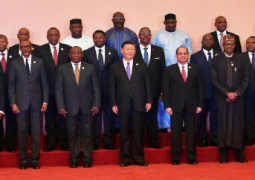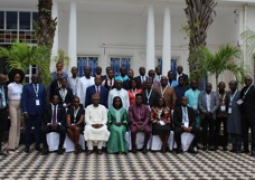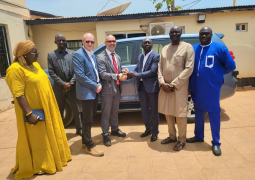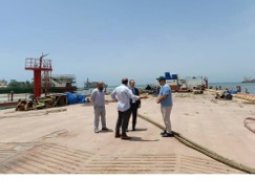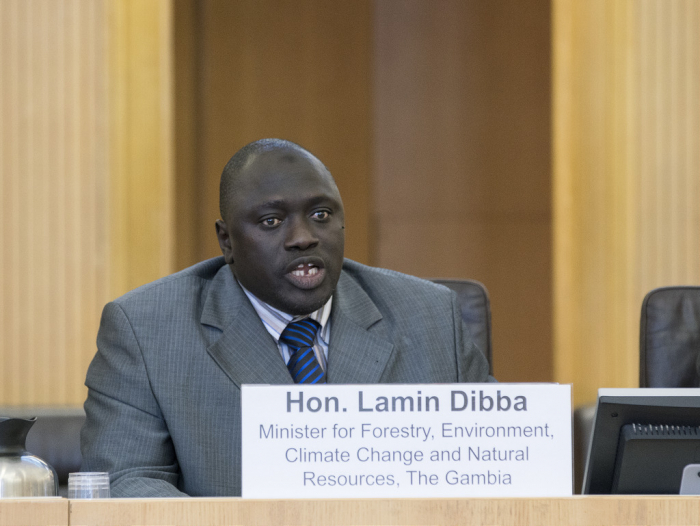
That is why, he said, Stockholm Convention is a legally binding international instrument designed to lead to the gradual decrease of the presence of POPs in the environment.
Lamin B. Dibba said this in a key note address during official virtual launching of the project and the National Inception Workshop on PCBs and UPOPs Capacity building project in The Gambia. He noted that the National Environment Agency on behalf of the Gambia Government in partnership with GEF and UNDP is implementing this important project as part of the implementation of the Stockholm Convention for Persistent Organic Pollutants.
Minister Dibba further disclosed that: “One of the key activities of the project is creating awareness and building capacity of the key stakeholders for environmentally sound management of PCBs and their contaminated sites as well as reduce open burning of waste which is common practice in The Gambia. The project will ensure that an adequate level of sustained capacity for the sound management of PCBs and waste management / UPOPs reduction will be built for the management of any further hazardous waste identified such as PCBs after the project’s closure and for scaling-up improved waste management practices.”
In recognising the importance of stakeholder participation, the Environment minister noted that this national inception workshop is being held to thoroughly review the strategies of the implementation and to identify roles and responsibilities of different stakeholders. Adding on, he said, issues on POPs impact many sectors, including policy-making, law-making, environmental protection, agriculture, public health, industry and the private sector, the public and various interest groups.
To make an effective and successful project, a wide range of stakeholders must be involved and engaged in the process, and I therefore encourage all participants to get involved actively and take ownership of the project throughout the entire process of the project life span. He pointed out.
In his opening remarks, the Executive Director of the National Environment Agency Dodou Trawalley disclosed that the Gambia Government through the National Environment Agency, and in partnership with UNDP Country Office is implementing this important GEF-funded national project, and the project intends to support the Gambia with the necessary technical and financial assistance to reduce the risks posed by PCBs and UPOPs to the environment and human health. He said this forms part of the obligations for the implementation of the Stockholm Convention on POPs National Implementation Plan (NIP).
Trawally told the participants that the Gambia ratified the Stockholm Convention in June 2003. To meet her obligations under the Convention, The Gambia had to prepare a National Implementation Plan (NIP) that will outline the situation of POPs in The Gambia and develop a plan to meet the requirements of the Convention. The goal of the NIP updating exercise is to protect human health and the environment from the risks posed by the unsound use, management and releases of POPs. This Convention is a legally binding international instrument, designed to lead to gradual decrease of the presence of persistent organic pollutants in the environment.
According to him, “It has been established that inventories of releases of unintentionally produced POPs (UPOPs) are dominated for the Least Developed Countries (LDCs), by releases from waste management processes and from open and uncontrolled burning of waste. Clearly, improper waste management practices, including the burning of landfill sites to reduce waste volumes and the burning of particular wastes by 'scavengers' to reclaim valuable components - such as aluminum, zinc, iron and mainly copper from discarded electrical wires, contributes to these release inventories.”
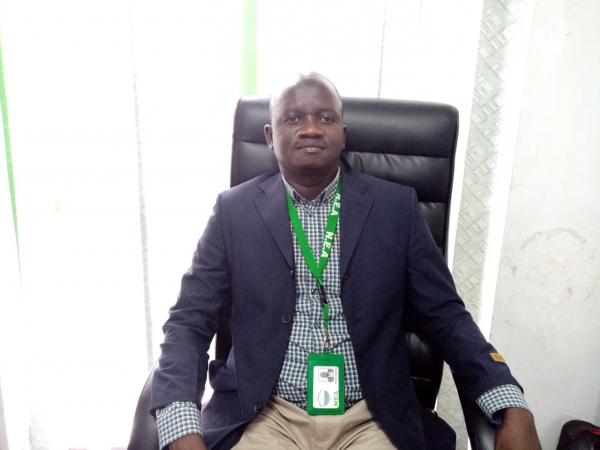
Dodou Trawally, Executive Director, NEA
Elsewhere, he noticed that the burning of agricultural wastes represents a traditional post-harvest activity but contributes to POPs emissions, air pollution and more generally the loss of carbon from already impoverished soil systems. In the LDCs, a significant proportion of economic activity may be in small and medium size enterprises and so-called 'informal' sectors that operate essentially outside government control, but may produces large releases of POPs to the environment.
PCB management and UPOPs reduction are among the top priorities for The Gambia according to the National Implementation Plan (NIP), and corresponds to the Stockholm Convention targets including the safe management of PCBs by 2025 and continuing minimization and, where feasible, ultimate elimination of unintentionally produced POPs. NEA Executive Director pointed out.
Recently he said the management of waste has moved up on the international political agenda in the context of environmental governance and this is in no small part due to what has become known as the “synergies” process between the Basel convention and other conventions like the Stockholm convention, the Rotterdam convention etc.
The government of the Gambia has made an important and notable commitment to ensuring that our natural resources are utilised in a sustainable manner under the National Environment Management Act (NEMA)1994, the broad outline of this principle is established for the institutional and legislative framework for effective management of the environment.
“Aware of the health concerns resulting to local exposure to Persistent Organic Pollutants, and in particular exposure at the work place, in close proximity to POPs wastes dumpsites, and UPOPs emission source; impact upon women and through them, upon future generations and considering a community with a low level of awareness, The Gambia has recognized the importance of this project in taking steps towards the development of an institutional framework for the sound management of chemicals and waste.” Trawally posited.
Recognizing the importance of stakeholder participation, he said the National Workshop is being held to consult with other key stakeholders in order to identify their roles and responsibilities during project implementation. In addition, he acknowledged the support of national and international partners such as GEF and UNITAR in the spirit of cooperation and commitment for working with the Government of The Gambia in trying to meet our obligations towards Multilateral Environment Agreements.
Omar Bah, the project coordinator applauded the support of national and international partners in giving the much desired technical and financial backstopping to build our capacities to ultimately take ownership of our developmental aspirations. He appreciated that we should all understand that environmental protection through sound management of chemicals and associated waste is not the government’s duty alone; all and sundry must demonstrate their commitments and take an active role in this.
Read Other Articles In Headlines
